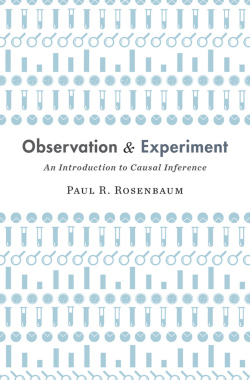Paul Rosenbaum’s latest book — Observation and experiment: an introduction to causal inference — is a well-written introduction to some of the most important and far-reaching ideas in modern statistics. With only a minimum of mathematics, the author manages to give a lively and interesting account of how statisticians try to use statistics to make causal inferences from observational studies and experiments. For non-graduate social science students with no or little ‘technical’ background, this is highly recommended reading. Especially for those who want to get their first grip on the nowadays so influential ‘potential outcomes’ paradigm, this is probably the most accessible presentation available. A must-read. That said, there are, of course, critiques that can be waged
Topics:
Lars Pålsson Syll considers the following as important: Statistics & Econometrics
This could be interesting, too:
Lars Pålsson Syll writes Keynes’ critique of econometrics is still valid
Lars Pålsson Syll writes The history of random walks
Lars Pålsson Syll writes The history of econometrics
Lars Pålsson Syll writes What statistics teachers get wrong!
 Paul Rosenbaum’s latest book — Observation and experiment: an introduction to causal inference — is a well-written introduction to some of the most important and far-reaching ideas in modern statistics. With only a minimum of mathematics, the author manages to give a lively and interesting account of how statisticians try to use statistics to make causal inferences from observational studies and experiments. For non-graduate social science students with no or little ‘technical’ background, this is highly recommended reading. Especially for those who want to get their first grip on the nowadays so influential ‘potential outcomes’ paradigm, this is probably the most accessible presentation available. A must-read. That said, there are, of course, critiques that can be waged against that paradigm. But I save that for another post.
Paul Rosenbaum’s latest book — Observation and experiment: an introduction to causal inference — is a well-written introduction to some of the most important and far-reaching ideas in modern statistics. With only a minimum of mathematics, the author manages to give a lively and interesting account of how statisticians try to use statistics to make causal inferences from observational studies and experiments. For non-graduate social science students with no or little ‘technical’ background, this is highly recommended reading. Especially for those who want to get their first grip on the nowadays so influential ‘potential outcomes’ paradigm, this is probably the most accessible presentation available. A must-read. That said, there are, of course, critiques that can be waged against that paradigm. But I save that for another post.
